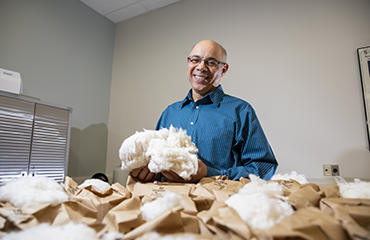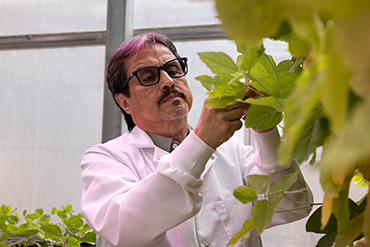
Center for Coupled Urban & Rural Environmental Sustainability (CURES)
CURES is addressing the problems of underserved communities in rural and small urban areas through a multidisciplinary approach that unites sciences, engineering, social sciences, and humanities.
Lubbock has long served as the economic, educational, and healthcare hub for rural communities in the South Plains region of the Texas Panhandle. Our location gives Texas Tech researchers a unique perspective on the ways secondary or mid-sized cities are connected culturally, economically, and environmentally to our rural neighbors.


